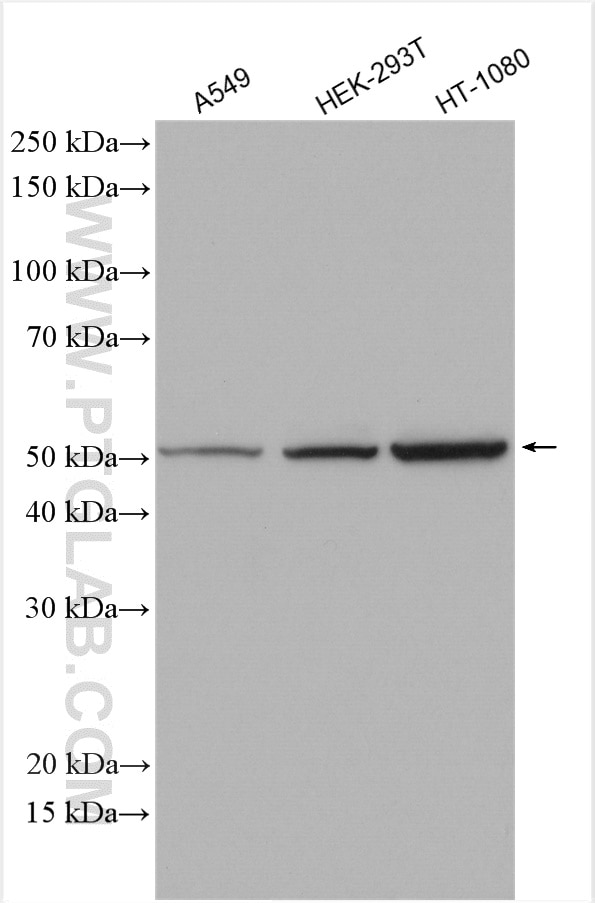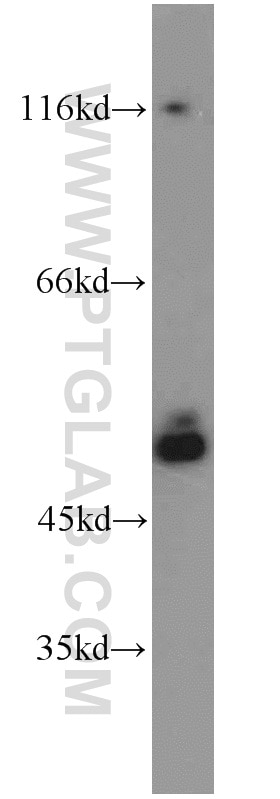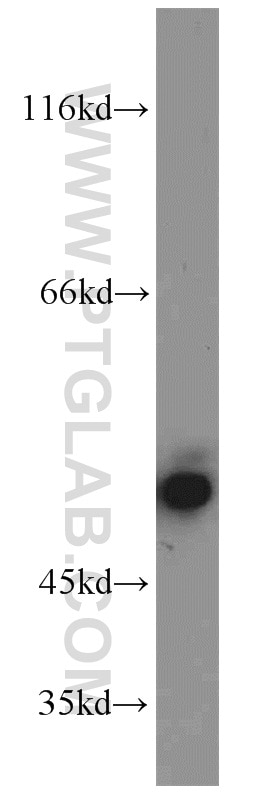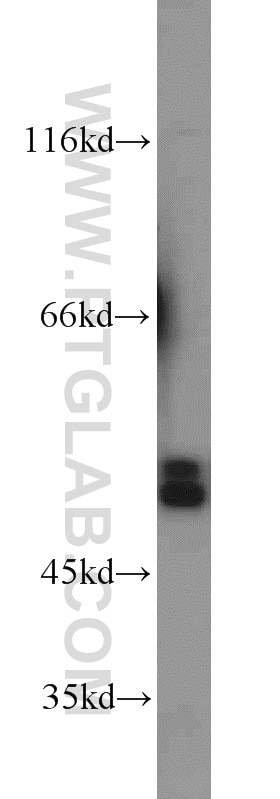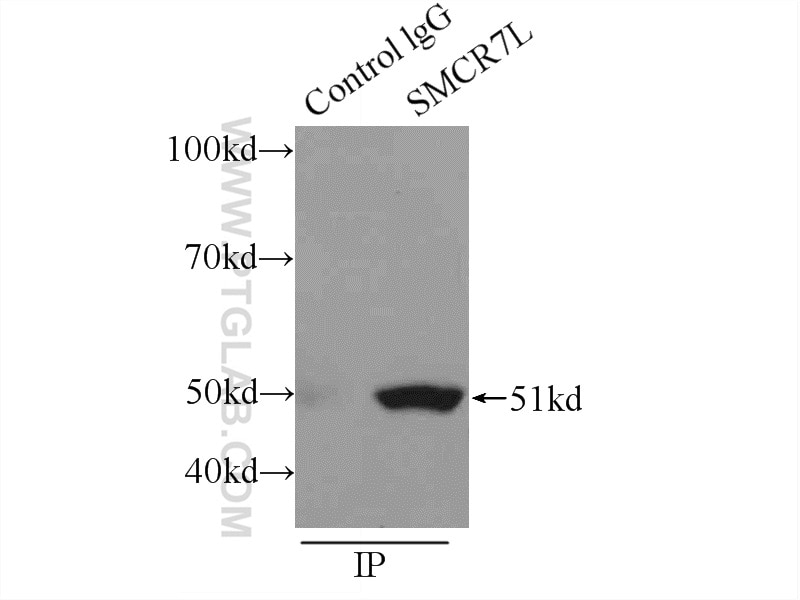Validation Data Gallery
Tested Applications
| Positive WB detected in | A549 cells, mouse testis tissue, NIH/3T3 cells, RAW264.7, HEK-293T cells, HT-1080 cells |
| Positive IP detected in | RAW 264.7 cells |
Recommended dilution
| Application | Dilution |
|---|---|
| Western Blot (WB) | WB : 1:500-1:2000 |
| Immunoprecipitation (IP) | IP : 0.5-4.0 ug for 1.0-3.0 mg of total protein lysate |
| It is recommended that this reagent should be titrated in each testing system to obtain optimal results. | |
| Sample-dependent, Check data in validation data gallery. | |
Published Applications
| KD/KO | See 10 publications below |
| WB | See 72 publications below |
| IHC | See 2 publications below |
| IF | See 3 publications below |
| IP | See 2 publications below |
| FC | See 1 publications below |
Product Information
20164-1-AP targets SMCR7L/MID51 in WB, IHC, IF, IP, ELISA applications and shows reactivity with human, mouse, rat samples.
| Tested Reactivity | human, mouse, rat |
| Cited Reactivity | human, mouse, rat, pig, monkey |
| Host / Isotype | Rabbit / IgG |
| Class | Polyclonal |
| Type | Antibody |
| Immunogen | SMCR7L/MID51 fusion protein Ag13775 相同性解析による交差性が予測される生物種 |
| Full Name | Smith-Magenis syndrome chromosome region, candidate 7-like |
| Calculated molecular weight | 463 aa, 51 kDa |
| Observed molecular weight | 48-51 kDa |
| GenBank accession number | BC002587 |
| Gene Symbol | SMCR7L |
| Gene ID (NCBI) | 54471 |
| RRID | AB_10639522 |
| Conjugate | Unconjugated |
| Form | Liquid |
| Purification Method | Antigen affinity purification |
| UNIPROT ID | Q9NQG6 |
| Storage Buffer | PBS with 0.02% sodium azide and 50% glycerol{{ptg:BufferTemp}}7.3 |
| Storage Conditions | Store at -20°C. Stable for one year after shipment. Aliquoting is unnecessary for -20oC storage. |
Background Information
Human SMCR7L gene encodes, MID51, the mitochondrial dynamic protein of 51 kDa (also called mitochondrial elongation factor 1, MIEF1). MID51 is a single-pass membrane protein anchored to the mitochondrial outer membrane and regulates mitochondrial morphology. Mitochondrial morphology is controlled by two opposing processes: fusion and fission. Elevated MID51 levels induce extensive mitochondrial fusion, whereas depletion of MID51 causes mitochondrial fragmentation. MID51 interacts with and recruits Drp1 to mitochondria, suggesting a critical role of MID51 in regulation of mitochondrial fusion-fission machinery in vertebrates.
Protocols
| Product Specific Protocols | |
|---|---|
| WB protocol for SMCR7L/MID51 antibody 20164-1-AP | Download protocol |
| IP protocol for SMCR7L/MID51 antibody 20164-1-AP | Download protocol |
| Standard Protocols | |
|---|---|
| Click here to view our Standard Protocols |
Publications
| Species | Application | Title |
|---|---|---|
Science Golgi-derived PI(4)P-containing vesicles drive late steps of mitochondrial division. | ||
Cell Metab Mitochondrial Dynamics Is Critical for the Full Pluripotency and Embryonic Developmental Potential of Pluripotent Stem Cells. | ||
Nat Cell Biol MIROs and DRP1 drive mitochondrial-derived vesicle biogenesis and promote quality control.
| ||
Mol Cell Triaging of α-helical proteins to the mitochondrial outer membrane by distinct chaperone machinery based on substrate topology | ||
Autophagy Loss of MIEF1/MiD51 confers susceptibility to BAX-mediated cell death and PINK1-PRKN-dependent mitophagy.
| ||
Sci Adv Oligodendroglial glycolytic stress triggers inflammasome activation and neuropathology in Alzheimer's disease. |
